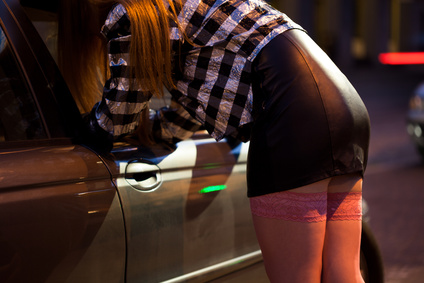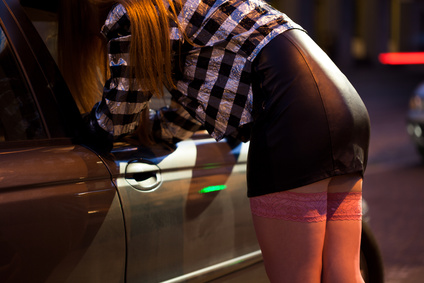Las Vegas, NV is one of the top cities in the United States for human trafficking, under the guise of legal prostitution (with the exception of Clark County). The problem involves mostly children and women forced against their will to partake in sexual acts, escort services, prostitution, pornography, or to labor in massage parlors, farms, restaurants, construction and sweat shop factories. Most are persuaded to trust their captors by the promise of a better life. Then the girls are often bound by intimidation, threats and abuse. With a high illegal immigrant population, foreign victims are coerced by threats of being deported if they refuse to comply to the trafficker’s demands.
A large number of human trafficked victims are minors at the average tender age of just 12 years old when they enter the forced underground practice. Sadly, in Las Vegas, 1 in 3 minors on the streets (runaways or homeless) will be lured into prostitution within 2 days. Las Vegas is so susceptible as a city to human trafficking because of the encouraged behavior to sin as much as possible while you’re here without risk of anyone finding out. It’s a very transient city, making it easy for sex predators to move their victims around often and stay under authority radar. Visitors of Las Vegas come with an attitude expecting sex, creating a high demand here. And many policemen fail to realize the girl walking The Strip is either underage or forced into work and given a script of what to say.
But kidnapping, forced labor, and child prostitution is NOT legal in the state of Nevada, though voluntary adult prostitution may be. And this is a community problem. Those children are not just runaways or victims of abduction, but our daughters as well. Because there will never be enough federal or state funding to fight human trafficking on the kind of scale we would like, it’s up to the community to get involved.

We cannot, as contributing members of society, continue to live our lives as if nothing is wrong. We are called and have a responsibility to right our community and take it back. In July of 2013, lawmakers passed Assembly Bill 67 which allows victims to sue their traffickers, makes them eligible for state assistance, and establishes the crime of sex trafficking. There needs to be a heightened awareness in our community and a stronger effort on behalf of businesses to support anti-human trafficking campaigns. Support for the fight against human trafficking must increase.
As a business, we strongly encourage you to join forces with us in the community and support, increase awareness, and fund organizations such as:
Anti-Trafficking League Against Slavery (ATLAS)
Crimes Against Youth & Family Bureau
Las Vegas Metro Police Dept.
4750 W. Oakley Blvd.
Las Vegas, Nevada 89102
Purple W.I.N.G.S. (Women Inspiring Noble Girls Successfully)
(702) 816-2988
pwgirls@purplewings.org
CAST (Coalition to Abolish Slavery and Trafficking)
As an individual, you can offer your services and financial support to organizations that provide relief to victims. Men can speak out against johns who purchase minors for sex. Parents, parent-teacher organizations and schools can help educate children about how to protect themselves online. Doctors, nurses, hospitality and travel industry workers can obtain training to identify victims and help them access services. Be aware of warning signs of human trafficking. Some indicators include:
- Appearing malnourished
- Showing signs of physical injuries and abuse
- Avoiding eye contact, social interaction, and authority figures/law enforcement
- Seeming to adhere to scripted or rehearsed responses in social interaction
- Lacking official identification documents
- Appearing destitute/lacking personal possessions
- Working excessively long hours
- Living at place of employment
- Checking into hotels/motels with older males, and referring to those males as boyfriend or “daddy,” which is often street slang for pimp
- Poor physical or dental health
- Tattoos/ branding on the neck and/or lower back
- Untreated sexually transmitted diseases
- Small children serving in a family restaurant
- Security measures that appear to keep people inside an establishment – barbed wire inside of a fence, bars covering the insides of windows
- Not allowing people to go into public alone, or speak for themselves
For further information on human trafficking, please visit: Humantrafficking.org




Comments